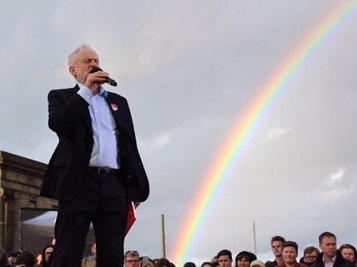When reaching decisions on how to tackle climate change, the industrialised rich West needs to lift its gaze beyond its borders and look at fellow human beings worldwide, writes Dr Adnan Al-Daini.
THE BEST the high level climate talks in Paris (COP21) can achieve is to agree measures and actions to limit the increase in global temperature of our planet to 2ºC. Scientists, however, believe that even our best efforts will see a rise of 3ºC. Leaders of the industrialised rich West believe the consequences of such a rise can be mitigated in their own countries by their advanced technology and expertise. For some countries in the developing world, however, such a rise in temperature would be devastating.
So, where do we go from here? Let us start from figures that are hardly mentioned in all the coverage of COP21. I refer to carbon dioxide (CO2) emissions per capita worldwide (tonnes of CO2 per year). If we take China, United States, Britain, India and Australia as examples, the figures are: China 7.4, US 16.6, Britain 7.5, India 1.7 and Australia 16.9. The average for the European Union is 7.3. Thus China, Britain and the EU are on roughly the same figure, while the average American and Australian contributes twice the CO2 contributed by the average European, and 10 times that of the average Indian. At the other end of the scale, the average American and Australian contribution to climate change is 40 times that of Bangladesh’s average citizen.
Bangladesh is a country like many other low-lying poor countries – vulnerable to sea level rise and extreme weather conditions resulting from climate change – yet it has contributed little to cause the problem in the first place. We have a world where the poorest and least prepared people are going to suffer the most.
We, in the industrialised rich West, need to recognise our duty to think globally. We need to lift our gaze beyond our borders and look at fellow human beings worldwide.
The figures above suggest the following steps:
First, the developing world will only listen to us, rightly in my view, if we lead by example. We need to acknowledge that energy generation has consequences beyond our borders; we need to be efficient and frugal in its use. This necessitates energy saving measures both on a personal, industrial and governmental level.
Impressed by how well this infographic presents data : Global Carbon footprint by country #globalwarming #emissions pic.twitter.com/UQgna5njhZ
— Peter Vermeulen (@pvermeul_peter) November 19, 2015
Second, we need to speed up our transition to truly renewable energy sources. Jeremy Rifkin, in his book The Third Industrial Revolution, envisages five pillars to achieve such a transition.
These are:
- shifting to renewable energy;
- transforming the building stock of every continent into micro-power plants to collect renewable energy on site;
- deploying hydrogen and other storage technologies in every building and throughout the infrastructure to store intermittent energies;
- using internet technology to transform the power grid of every continent into energy-sharing intergrid that acts just like the internet; and
- transitioning the transport fleet to electric plug-in and fuel cell vehicles that can buy and sell electricity on a smart, continental, interactive power grid.
Third, we need to help developing countries by providing the technology and the expertise to take the necessary measures to minimise the impact of climate change on people. This will require education, technology transfer and machines and tools to enable them to construct their own defences.
Fourth, it is evident that we need to use a certain amount of generated energy to sustain a comfortable life style. Electricity is the most versatile and useful form of energy available. We, in the industrialised West, need to help the poorest on earth to have non-fossil fuel electricity generation. Worldwide there are some 1.3 billion people without access to electricity. Stand-alone photovoltaic systems could provide them with quick decentralised electricity. Let us, together with China, be the factory of the world to provide this most essential form of energy. This will lift people from crippling poverty and help with their education, by providing them with access to the internet and the world. This will, in turn, provide them with the means and the tools to better defend themselves against the ravages of climate change.
As a species, we have tremendous talents. Our scientific achievements are incredible; our advances in medicine and technology are stunning. So let us give our ingenuity and imagination a free reign to think beyond our borders. Let us work together to face climate change in a spirit of fairness and justice, guided by our shared humanity regardless of where we happen to live.

This work is licensed under a Creative Commons Attribution-NonCommercial-NoDerivs 3.0 Australia License
Monthly Donation
Single Donation
Be safe. Subscribe to IA for just $5.









